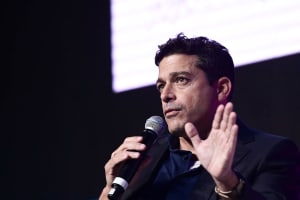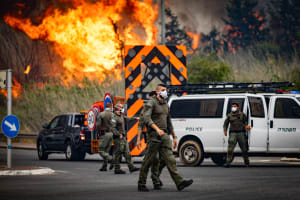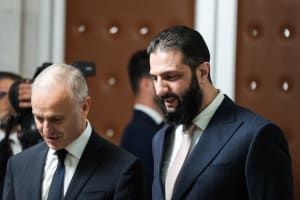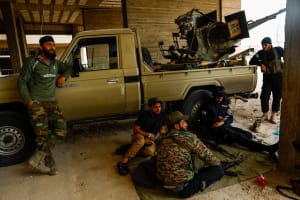The Hebrew-speaking Latin Patriarch of Jerusalem who may become the next pope
Cardinal Pierbattista Pizzaballa is from Italy but moved to Israel over 35 years ago

People around the world are closely watching to see who will succeed Pope Francis, following his departure on Monday.
Among the potential candidates is Cardinal Pierbattista Pizzaballa, the current Latin Patriarch of Jerusalem. His possible ascension to the papacy has sparked mixed reactions in Israel, with some questioning whether his election would ultimately benefit or harm the Jewish state.
Pizzaballa (60) is originally from Italy but moved to Israel shortly after he was ordained in 1990. After some 35 years in the land, he has become fluent in Hebrew and familiar with the complex situation here in the Middle East.
He received a degree from the Studium Biblicum Franciscanum in Jerusalem and, in 2004, was made Custos of the Holy Land, with responsibility over the Franciscans in Israel, the Palestinian territories, Jordan, Syria, Cyprus, Rhodes, and some of Egypt, according to The Times of Israel (TOI).
He was later appointed to the first Latin Patriarchate of Jerusalem in 2016 and then Latin Patriarch in 2020, now representing and heading the Christians in the Holy Land, the vast majority of which are Arab.
In 2023, Pope Francis made him a cardinal, a move which Pizzaballa said raised the “voice of Jerusalem” both in the Church and internationally. He described the Israeli capital as “the heart of the life of the world,” adding, “from this heart, we should receive life from all over the world. But also this heart, Jerusalem, wants to bring the perspective and desire of life from Jerusalem to all over the world.”
Rabbi David Rosen, former American Jewish Committee international director of Interreligious Affairs was enthusiastic about the possibility of Pizzaballa taking the top position, saying, “In my opinion, it would be wonderful if he were elected, not just because he comes from here and he understands us, but because he’s such an exceptionally bright and good person,” he told the TOI.
Others have highlighted the Cardinal’s much-publicized response to a reporter’s question on Oct. 16, 2023, when he was asked if he would be willing to take the place of hostages.
“If I’m available for an exchange? Anything, if this could bring about the freedom of children, no problem. My absolute willingness.”
However, if Pizzaballa was directly asked by the press if he would be willing to take the place of the hostages, a man in his position would have little alternative other than to answer in the affirmative.
The Cardinal’s words may be viewed by some as symbolic rather than actionable, especially when contrasted with the actions of the late Brother Andrew, who traveled to Lebanon in 1990 to take the place of a hostage who had been held by Hezbollah for over three years.
“The man has suffered enough. Let him go back to his wife and children. I will take his place,” Andrew offered. Though he ultimately rejected Brother Andrew’s proposal, Hezbollah's Ayatollah Fadlallah was astonished, exclaiming, “I have never heard about this kind of Christianity.”
“This is the spirit of Jesus,” Andrew answered. “He died on the cross to let us go free. Now I’m ready to give myself up so my friend can go free. That is what Christianity is all about.”
Pizzaballa later conceded that his office has not been in communication with Hamas, saying, “You can’t talk to Hamas. It is very difficult.”
As the Pardes Institute pointed out, while the Cardinal said he would do “anything” to “bring to freedom and bring home the children,” he made no effort to communicate his offer directly to Hamas.
This raises questions about the sincerity or intent behind his statement. The institute also expressed disappointment that the highest Vatican representative in Israel has not been an outspoken supporter of the Jewish state – quite the opposite, they remarked.
Following the October 7 attack, Pizzaballa called Hamas' actions "barbaric," but his official statement drew criticism for addressing the targeting of civilians in broad, general terms.
However, considering his role as a spiritual leader to communities on both sides of the conflict, a high degree of caution in his public remarks is understandable.
As part of his support for the Catholic church in Gaza and in Israel, Pizzaballa has condemned the rising hostility toward Christians under the more right-wing Israeli government. He has also praised Pope Francis for maintaining daily contact with Catholics in Gaza throughout the war.
Yet, Pizzaballa studied Jewish texts for his doctorate and has translated liturgy into Hebrew, taking a broader approach than his predecessor, Michel Sabbah, who made no secret of his firm alignment with the Palestinian cause.
“Work for justice… but without becoming part of the conflict,” said Pizzaballa, summing up his understanding of the late pope’s approach. “For us, for the Church, it leaves an important legacy.”
Describing relations with authorities in Gaza, Pizzaballa spoke of “ups and downs” in an interview with First Things.
“We are respectful, in a way,” he said, adding that Hamas “had very strong control of the territory.”
He also highlighted the challenges posed by schools that encourage children to abandon ideals of nonviolent resistance in favor of adopting Hamas-style jihad.
“We have to be prudent, not to be involved in a confrontation with them,” adding, “... [we] have to prove that we are loyal to Palestinian society.”
Lahav Harkov, senior political correspondent for Jewish Insider, posted her concerns about the potential appointment on 𝕏.
“If Pizzaballa becomes the new pope, expect the rhetoric on Israel from the Vatican to get even worse than it was under Francis,” she wrote.
Her statement was accompanied by a picture of the Cardinal sporting a keffiyeh, potentially an even farther step toward identification with the Palestinian cause than that which Pope Francis exhibited with the keffiyeh-wrapped baby Jesus in the nativity scene displayed in the Vatican.

Jo Elizabeth has a great interest in politics and cultural developments, studying Social Policy for her first degree and gaining a Masters in Jewish Philosophy from Haifa University, but she loves to write about the Bible and its primary subject, the God of Israel. As a writer, Jo spends her time between the UK and Jerusalem, Israel.
You might also like to read this:

















